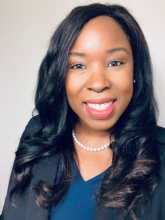MSE 298 Seminar: Creating Value From CO2: The Development Of Sorption-Enhanced Catalysts To Promote A Circular Economy

Assistant Professor
Department of Civil Environmental Engineering
University of Southern California
Abstract: A circular CO2 economy aims to redefine growth by focusing on society-wide benefits and looking beyond the current take-make-waste industrial model. Developing thermally robust catalysts and sorbents can help create new processes for full CO2 utilization. To begin the presentation, I will discuss the advantages of a circular economy on society based on my experience as a former refinery chemist. I will then delve into the technical aspects of creating new, dual-functional materials that capture and convert carbon. Specifically, two examples will be presented: Ni/Zr/CaO and Ni/CaTiO3/CaO catalysts, both used to capture and convert CO2. These catalysts are used within a cyclical CO2 capture and conversion process to convert CO2 from simulated flue gas into methane (Power-to-gas) or synthesis gas. Typically, the embedded Ni catalyst and CaO sorbent materials deactivate quickly due to thermal fluxes that promote sintering and carbon deposition. The loss of surface area in both the sorbent and catalyst leads to a decrease inthe CO2 capture capacity and productivity. Recent studies using Ni/Zr/CaO andNi/CaTiO3/CaO have shown improved thermal stability, leading to insights on further catalyst/sorbent development to reach industrial practicality.
Bio: Kandis Leslie Abdul-Aziz directs the Sustainable Lab, which primarily focuses on developing novel materials for sustainable catalytic processes for low-carbon chemical production. Her primary research focus is novel catalyst development for CO2 sequestration and utilization using an interdisciplinary toolset from physical chemistry, material science, chemical and environmental engineering. Abdul-Aziz is also the founder of AgriCarbon, a company that transforms waste into water filters. She is a 2021 Scialog Negative Emissions Science and National Academy Frontiers of Engineering fellow. She was awarded a DOE Early Career Award in 2023 for developing high-entropy alloy nanoparticles and an NSF Career Award in 2022 for sorption-enhanced bifunctional carbon capture and utilization catalysts.
Abdul-Aziz is a Wise Gabilan assistant professor in the Sonny Astani Civil and Environmental Engineering department at the University of Southern California. Before joining USC, she directed the Sustainable Lab at UC Riverside, between 2018 – 2023. She earned her Ph.D. in chemistry from the University of Illinois at Urbana-Champaign and was a provost postdoctoral fellow at the University of Pennsylvania. She worked previously as a forensic scientist for the Philadelphia police department and as a refinery chemist at Sunoco Chemicals in Philadelphia.
Share
Related Content
| Attachment | Size |
|---|---|
| 1.11 MB | |
| 680.86 KB |
Upcoming Events
-
MSE 298 Seminar: Quasi-1D/2D Charge-Density-Wave Materials - From Exotic Physics to Application Prospects
-
EECS Seminar: Steering Diffusion Models for Generative AI, From Multimodal Priors to Test-Time Scaling
-
MAE 298 SEMINAR: Hypersonic Viscous Aerothermochemistry - External Aerothermodynamics and Scramjet Fuel-Air Mixing
-
CBE 298 Seminar: Finding Catalysts of Gut Reactions - The Gut Microbiota in Disease Onset and Treatment
-
CEE Seminar: Confirming a Critical Foundation of Global Warming - Direct Observational Evidence from Space of the Impact of CO2 Growth on Infrared Spectra
